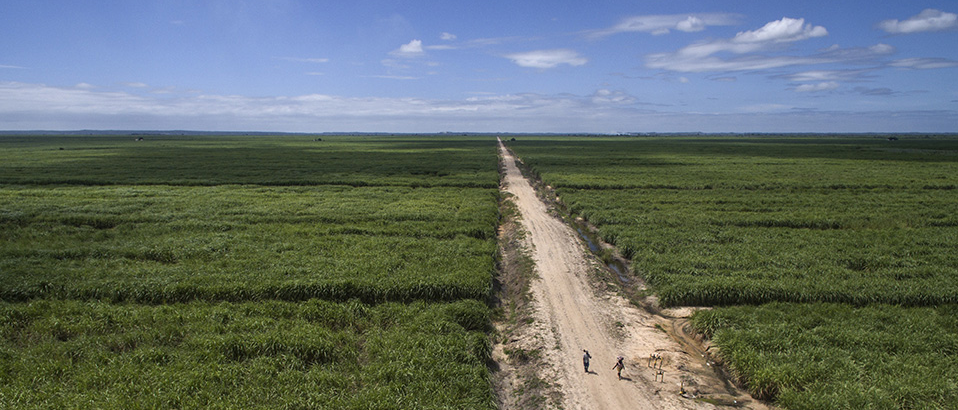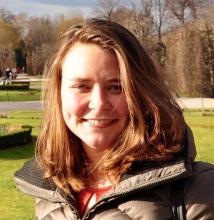Program Advisor LAND-at-scale at RVO, the Netherlands Enterprise Agency.
Details
Website
Location
Contributions
Displaying 11 - 20 of 61About

LAND-at-scale is a land governance support programme for developing countries. The livelihood of a large part of the world’s population depends directly on having secure access to land. LAND-at-scale aims to contribute to fair and just tenure security and access to land and natural resources for all. This will lead to more sustainable and efficient use of land and natural resources for food, housing and production. It will also reduce conflicts and competing claims over land.
Improved land governance will help realize many of the sustainable development goals (SDGs). It will support food and nutrition security, economic development and peace and stability. The programme also contributes to more sustainable incomes and social justice. Women’s rights and climate change are important cross-cutting themes in the programme, as can be found in the LAND-at-scale programme document.
Current activities
LAND-at-scale is active in the following countries:
 Burkina Faso, Burundi, Chad, Colombia, Democratic Republic of the Congo, Egypt, Iraq, Mali, Mozambique, Palestine Territories, Rwanda, Somalia, Uganda, and Vietnam.
Burkina Faso, Burundi, Chad, Colombia, Democratic Republic of the Congo, Egypt, Iraq, Mali, Mozambique, Palestine Territories, Rwanda, Somalia, Uganda, and Vietnam.
Land-At-Scale Newsletters
Q2 2022 Netherlands Enterprise Agency (rvo.nl)
Q1 2022 Netherlands Enterprise Agency (spotler.com)
Q4 2021 Netherlands Enterprise Agency (spotler.com)
Q3 2021 Netherlands Enterprise Agency (spotler.com)
Q2 2021 Netherlands Enterprise Agency (spotler.io)
Outcomes
LAND-at-scale strives to realise just and fair land governance. In the long-term, this will contribute to SDGs 1, 2, 5, 11, 15 and 17 and may contribute indirectly to SDGs 8, 9, 10, 13 and 16. In the shorter-term, the programme focuses on the following outcomes:
- Improved, fit-for-purpose land administration;
- Improved land-use management planning, including participatory land consolidation, sound natural resource management and social integration;
- Improved access to justice for land-related conflicts and conflict resolution. Fewer cases of land conflicts and equal opportunities for man and woman;
- Increased inclusiveness in access to land, land use documentation, land rental and land markets. There is a special focus on women, youth and vulnerable people;
- Increased knowledge and learning about the effects of innovative approaches and how to scale successful land governance methods that advance structural change;
- New and improved action-oriented, multi-stakeholder networks. These networks enhance just, inclusive and sustainable land governance.
Process
Ideas for LAND-at-scale can be issued by Dutch Embassies. They should contain the upscaling of successful pilots or innovative pilots with upscaling potential. All ideas should relate to fair, inclusive and sustainable land governance at country, regional or landscape level. Ideas can involve a single intervention or several, related interventions needed to achieve the change wanted.
Dutch Embassies must share ideas for LAND-at-scale with the Netherlands Enterprise Agency. The LAND-at-scale Committee then selects most promising ideas. The Netherlands Enterprise Agency will explore the possibilities to translate ideas into projects. This will be done in close collaboration with embassies and local stakeholders. Once the idea has been formulated into a project strategy, the organisations that will implement the project will be identified. The Netherlands Enterprise Agency manages the projects.
Supported activities
Activities supported by LAND-at-scale contribute to the result frameworks of the Netherlands Ministry of Foreign Affairs’ priority themes. These themes include food & nutrition security, access to justice, private sector development and gender equality. Land governance activities LAND-at-scale supports include:
- Making existing and new land-based investments inclusive and sustainable;
- Scaling and piloting innovative interventions that enhance structural change;
- Capacity development of governmental and non-governmental stakeholders;
- Improving the position of women, youth and vulnerable people;
- Joint learning, knowledge exchange and multi-stakeholder action;
- Lobby and advocacy.
Criteria for support
The criteria for support are included in the LAND-at-scale programme document. To qualify for support, ideas must:
- follow the annual LAND-at-scale strategic plan and the strategic plans of the relevant Dutch Embassy;
- contribute to the LAND-at-scale aims;
- have local support from the key stakeholders;
- be additional to the market; and
- not be eligible to apply to other programmes from the Ministry of Foreign Affairs.
Supported interventions will be carried based on the Voluntary Guidelines on the Responsible Governance of Tenure of Land, Fisheries and Forests (VGGT). LAND-at-scale projects will promote gender equality and women’s empowerment. Projects will also give attention to the effects of climate change. Support can be provided in various forms. This includes knowledge exchange, contracts and tailor made grants. Civil society organisations (CSOs), producer organisations, knowledge institutes, governments and companies or consortia may be chosen to carry out the interventions.
Geographic focus
LAND-at-scale is open to all low and middle income countries, except for the countries in Europe. Preference will be given to ideas from countries within the focus regions of the Ministry of Foreign Affairs and countries where LAND-at-scale can build on earlier Dutch supported interventions.
Budget
LAND-at-scale has an implementation budget of €37,5 million and will be open until 2026. The programme welcomes co-financing and cooperation with other demand-driven initiatives that aim to improve just, inclusive and sustainable land governance.
Looking back at the LAND-at-scale Exchange 2022: The importance of collective learning and reflections for land governance support programs
On 27-28 June 2022, RVO organized the first annual LAND-at-scale exchange, bringing together over fifty LAND-at-scale project partners, knowledge management partners, Committee members as well as representatives from the Dutch Ministry of Foreign Affairs for an in-depth introduction of all LAND-at-scale stakeholders and facilitate a learning exchange.
Seeking inclusive, economical, and technical solutions for a sustainable land administration system in Mozambique
Mozambique has a progressive land law that came into place through a historically inclusive process. However, there are many obstacles to the proper implementation of the law, including the communities’ lack of formalized land tenure. Terra Firma, one of the LAND-at-scale partners in Mozambique, has worked on achieving tenure security for communities in Mozambique for a long time. To learn more from their experiences and strategies on how to do this in a sustainable way, LAND-at-scale interviewed Maria Muianga from Terra Firma.
Learning from and scaling up tenure security approaches in Burkina Faso
Burkina Faso has a long history of land interventions aiming to achieve tenure security at the local level. The “Observatoire National du Foncier au Burkina-Faso” (ONF-BF) is one of the key players in the country working on mapping land rights within communities at commune-level. How does ONF-BF address the challenge of not only attaining tenure security through mapping, but ensuring these tenure rights last over time?
Challenges to sustain tenure in Colombia: harmonizing indigenous traditions with ‘modernistic’ principles of economic growth
The LAND-at-sale project in Colombia was the first LAND-at-scale project to kick off. With its mid-term review just concluded, the project provides interesting insights into the challenges of not only achieving tenure security but sustaining it over time within a complex context. LAND-at-scale interviewed Piet Spijkers at Kadaster International, to learn more about their approach to achieve and sustain tenure security in Colombia through the LAND-at-scale project.
Achieving and sustaining tenure: experiences from Uganda
The Global Land Tool Network (GLTN) has a lot of experience across the world in implementing tenure security projects. Like no other, they understand the threat insecurity of tenure has on people’s livelihoods and food security and have made it their mission to secure tenure rights for all. LAND-at-scale is working with GLTN in Uganda to design a scalable approach towards improved tenure security and sustainable land use for men, women and youth on customary land.
LAND-at-scale Vietnam
This one-pager provides details on the LAND-at-scale project in Vietnam. This project is implemented by Ministry of Natural Resources and Environment (MoNRE) and RVO GRO, and financed by the Ministry of Foreign Affairs via the Netherlands Enterprise & Development Agency.
Job Opportunity: Program advisor land rights RVO / LAND-at-scale
The Netherlands Enterprise & Development Agency (RVO) is looking for a program advisor in the team that manages the land governance support program LAND-at-scale. All applications should be submitted before April 1st. See the Dutch vacancy text below:
--
Binnen het team Mondiale Vraagstukken Voedselzekerheid zoeken wij een Programma Adviseur Landrechten voor 'LAND-at-scale'.
Scaling up gender-sensitive approaches in Burundi
As observed in many countries, women’s access to land in Burundi is hampered by customary practices. ZOA, VNG and MiPAREC are scaling up a gender-sensitive approach to strengthening women’s rights to land. Experiences from the past prove that sensitization and awareness raising are for a meaningful and successful outcome for women. But there are also many challenges and pitfalls when it comes to working on a topic as women’s land rights.
A story of women as driving force for land reform - How a campaign on women’s land rights paved the way for broad land reform and development interventions on just land governance in Chad
« ‘Je prie Dieu qu’il ait partage et communion entre nous les femmes, que nous parlions d’une seule voix, pour se faire entendre par les autorités, qu’ils nous écoutent et nous soutiennent dans nos initiatives, à vaincre la faim et avoir abondement à manger’ Marthe Ladem, productrice rurale Logone orientale ( voir histoire de vie ‘Avec la femme rurale pour un Tchad sans faim




